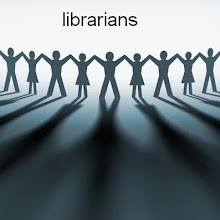Administrative Imperatives
"The erosion of librarian control over work skills is not "caused" by the rising aspirations of LAs nor by the prevalence of information technology. Rather, the changing work roles in research libraries, including the shift of responsibilities to LAs, reflect human decisions made in the context of "business models" that place a premium on efficiency and cost effectiveness. This trend is part of an established professional culture broader than librarianship. It is encouraged by managers and administrators whose values do not necessarily emphasize traditional assumptions regarding professionalism and the prerogatives of professional staff.
Librarians have been encouraged to link their status to the supervision and management of others, and in doing so, have complicitly abandoned the skill base that has traditionally defined the profession and have assumed increasingly abstract management roles. The danger is that management is a profession unto itself and librarians could ultimately lose control of both the front-line work of libraries as well as their administration."
source: Library Issues
Librarians have been encouraged to link their status to the supervision and management of others, and in doing so, have complicitly abandoned the skill base that has traditionally defined the profession and have assumed increasingly abstract management roles. The danger is that management is a profession unto itself and librarians could ultimately lose control of both the front-line work of libraries as well as their administration."
source: Library Issues
